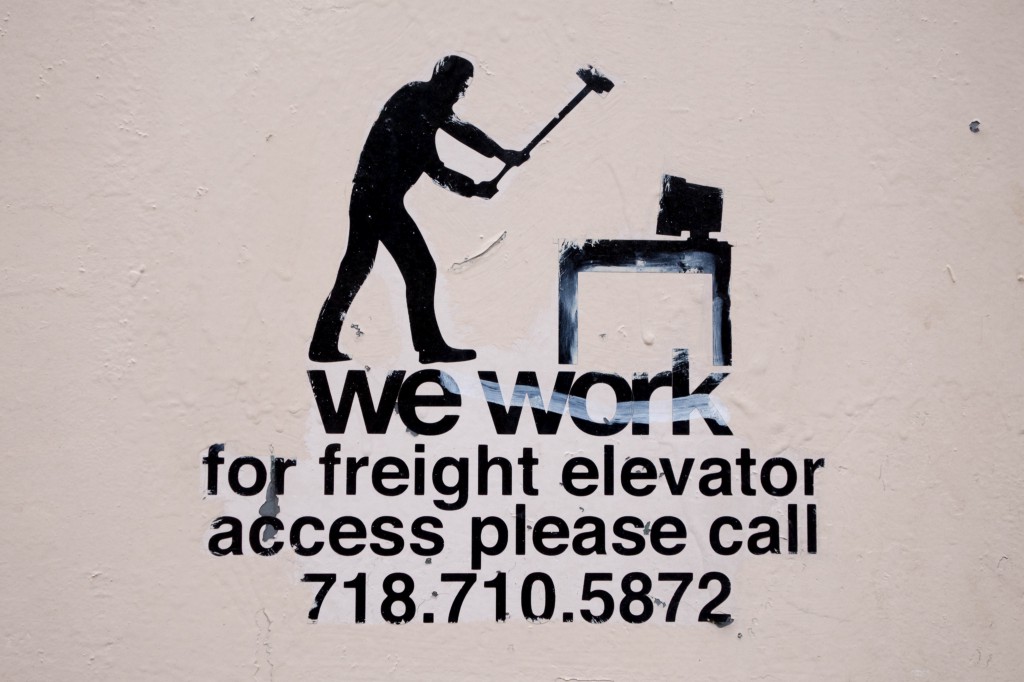WeWork Has A Problem With Overtime
When will the “startups treating their employees poorly” bubble burst?

Another day, another exposé on the working conditions for start-up employees. This time, it’s WeWork, the coworking startup whose entire mission is to provide a clean, comfortable and pleasant working environment for its members. The people responsible for tending the coffee, making sure the internet works and checking the bathrooms for hand soap and paper towels are part of the “community” staff. They greet you at the front desk with a smile and patiently tend to your questions about how to book a conference room when the process is relatively self-explanatory. If WeWork is truly a giant, beautiful office, then the community staff are the office managers — the glue that holds the whole thing together. Many of them say they were overworked, underpaid and told they were ineligbile for overtime when in fact, they were.
As WeWork Grew, Some Employees Say They Were Mistreated
In an attempt to course-correct from their mistakes over the past year, WeWork executives have been doing their best to raise pay, address confusion over job titles and give their employees “bonuses” like a trip to Australia. While international travel that someone else pays for sounds lovely, if it’s being offered in lieu of a bonus or appropriate compensation or anything else, really, then it’s a little less appreciated. Travel is the best kind of gift you choose for yourself, when you can afford it and when it works for you. It is not fair compensation for the money you are rightfully owed for overtime.
Here’s how WeWork got around the whole overtime thing.
U.S. employees who work more than 40 hours a week are required to be paid time and a half for any hours beyond that, with some exceptions, including one for workers whose primary duty is making independent and substantial decisions about the business. That’s the exemption that WeWork used for years to avoid paying overtime to front desk associates, associate community managers and community managers.
Operating under the assumption that most employees wouldn’t be bothered to check if they were entitled to overtime, WeWork employees adhered to the “hustle harder” ethos and did their jobs.
“I’m young; I’m a millennial; and we don’t really know our rights,” said Rachel Wynn, a 27-year-old former associate community manager in Washington, D.C., who left in 2015 and is planning to pursue a lost-wages case against WeWork. She and other former community staffers said they gave office tours and hosted events at the space. But they also spent much of their time brewing coffee, arranging catering and fixing printers. Sometimes the job involved catching mice and dealing with office party detritus, including used condoms in the meditation room and vomit in the phone booths.
Community staff members were required to work long hours, and also expected to attend weekly meetings called “Thank God It’s Monday” that, as Bloomberg reports, happened after their shifts’ end. Meetings and events after work-hours are tricky for employees who feel like they have to attend — part of the pact you make to keep the company culture alive and vibrant — but all that really does is erode at a work-life balance.
Managers have been attempting to improve their employees’ job satisfaction, via incentives that are nice enough, but pale in comparison to actual money or time.
In August, the company created a “culture committee,” where worker representatives can give feedback. WeWork has started giving “agile incentives” like travel and time off instead of cash bonuses. Berrent, the chief culture officer, said she sent one of her employees to the music festival Coachella for her bonus. The company is also exploring offering employees stock options that vest over seven or 10 years instead of the current five-year plan to encourage employees to stay longer. “We want 28-year-old employees to be 38-year-olds here,” Berrent said.
Time off is one thing, but if someone told me they were sending me to Coachella instead of giving me a bonus, I would wonder what I did wrong. What’s the takeaway here? WeWork needs to fix it, with money and not with “perks” and it’s always important to remember the golden rule: companies are not your friends.
Support The Billfold
The Billfold continues to exist thanks to support from our readers. Help us continue to do our work by making a monthly pledge on Patreon or a one-time-only contribution through PayPal.
Comments